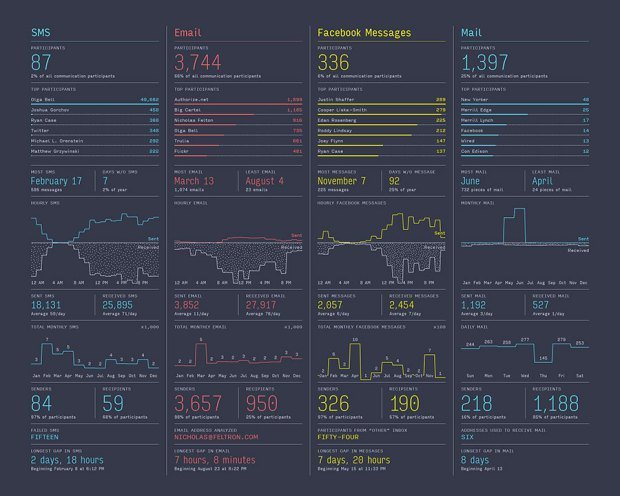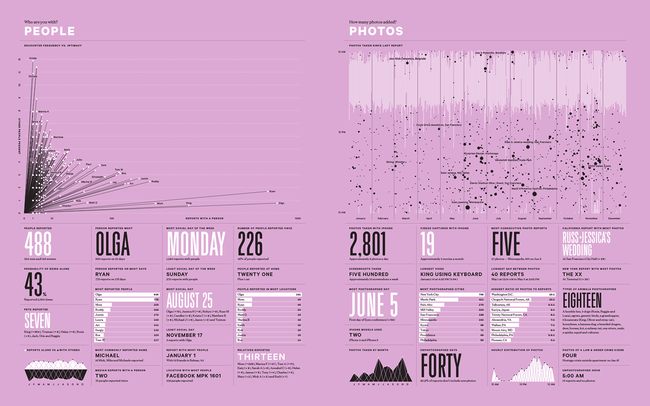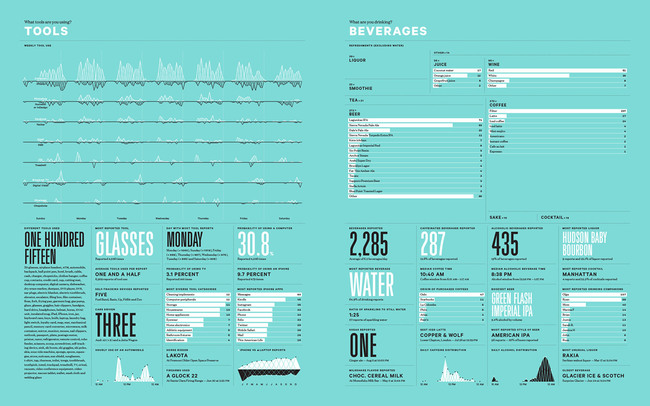Future Jobs: Personal Data Analyst
Down the road you’re going to create a lot of data, from health stats to social media posts to automobile numbers and on and on. Right now there’s no one good way to make sense of all that data unless your a data scientist with access to Tableau.
In the not too distant future I envision Personal Data Analysts. Much like how personal trainers work with you to get you in top physical form, Personal Data Analysts will work with you to find patterns in your behavior and get you in financial, physical, social and mental shape.
Where would they even start? Take a look at the work Nicholas Felton produces on a regular basis. Each year he creates the Feltron Annual Report.
He documents things like books read, restaurants visited, mail sent, places traveled and so on. All this data will be very common and accessible in the near future. Your health records and your financial records will be at your fingertips and you’ll want to make sense of it all. Once you understand your own patterns of behavior, those that benefit you and those that don’t, you may want to optimize for a healthier lifestyle.
How would you do that? You will want to make correlations between your health and your spending habits, your diet and stress, poor driving in relation to other behaviors. You’ll be able to look at everything you can quantify and begin to draw out the big picture.
And which technologies will I use to do this? There are plenty of tools that are trying to fill the niche market of business intelligence, I imagine this will produce personal intelligence software as well. Tableau will be there, as will Splunk, Spotfire and Qlikview.
Don’t worry though, your friendly Personal Data Analyst will be there to guide you.


